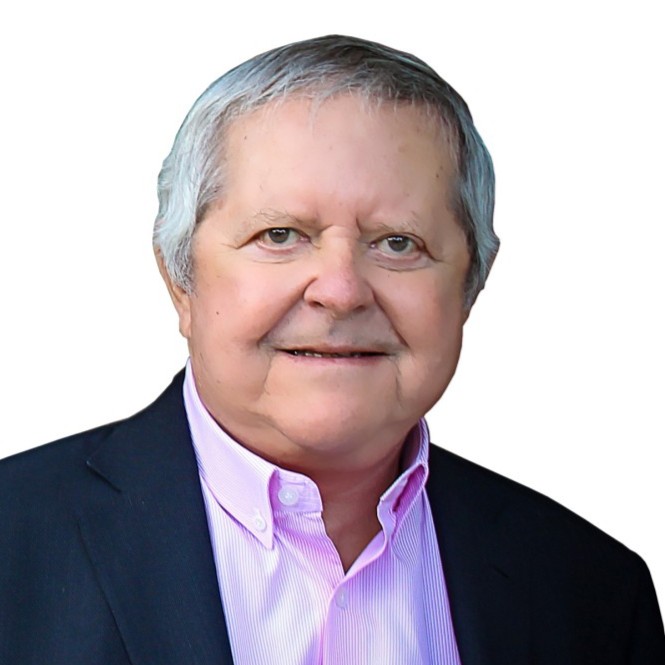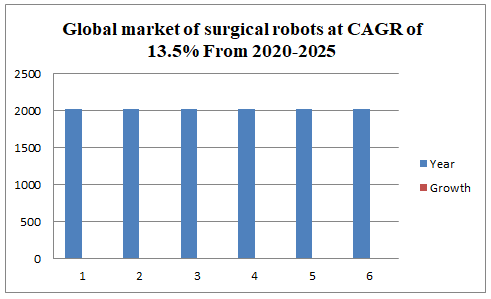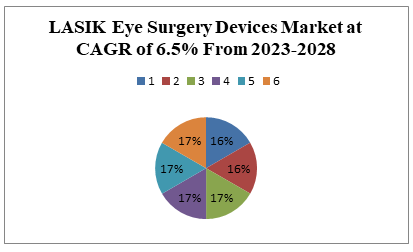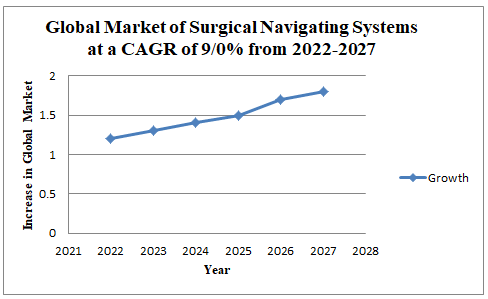Renowned Speakers

Ghassan Taraben
Neuro Surgeon USA

Harry Shufflebarger
Spinal Surgeon USA

David Ling Sien Ngan
Aesthetic plastic surgeon Malaysia
Recommended Global Surgery Webinars & Conferences
Asia Pacific & Middle East
Canada
SURGEONS MEET 2024
About Conference
We are thrilled to welcome you to Join the 7th World Congress on Surgeons conference, set to take place in the vibrant city of Dubai, UAE on June 19-20, 2024 with the theme: Innovation and Integration: Navigating the Surgical Frontier. This gathering promises to be an exceptional opportunity for surgeons, medical professionals, and healthcare enthusiasts to come together, exchange knowledge, and explore the latest advancements in the field of surgery.
Event Highlights:
Cutting-Edge Surgical Techniques: Learn about the most recent developments in surgical procedures, including minimally invasive and robotic-assisted surgery, from leading experts in the field.
Innovation Showcase: Discover innovative surgical instruments, technologies, and tools that are shaping the future of surgery during our exhibition.
Interactive Workshops: Engage in hands-on workshops and simulation sessions to enhance your surgical skills and knowledge.
Keynote Speakers: Gain insights from renowned surgeons who have made significant contributions to the world of surgery, as they share their experiences and vision for the future.
Networking Opportunities: Connect with peers, build professional relationships, and share ideas with fellow attendees during networking breaks and social events.
Surgical Research Symposium: Present your latest research findings or explore cutting-edge research in surgery during our research symposium.
Panel Discussions: Participate in thought-provoking discussions on current challenges, trends, and opportunities in the surgical field.
Why Attend:
- Stay at the forefront of surgical advancements.
- Collaborate with esteemed colleagues and experts.
- Gain hands-on experience with the latest surgical technologies.
- Earn valuable Continuing Medical Education (CME) credits.
- Expand your professional network.
- Contribute to the growth and innovation of surgery.
Mark your calendars for this exciting opportunity to immerse yourself in the world of surgery. Join us in Dubai in June 2024 to share, learn, and advance the field of surgery together.
Target Audience
- Surgeons
- Surgical residents and fellows
- Medical Students
- Nurses and Nurse Practitioners
- Anesthesiologists
- Surgical Assistants
- Hospital Administrators
- Researchers
- Neurologists
- Nephrologists
- Gastroenterologists
- Surgical oncologists
- Dentists
- Cardiologists
- Orthopaedic surgeons
- Trauma care surgeons
- Medical Device Manufacturers
- Pharmaceutical Companies
- Rehabilitation Specialists
- Healthcare Educators
- Surgical Societies and Associations
Sessions/Tracks
Track 1: General Surgery
General surgery is a versatile and fundamental discipline in medicine that encompasses a wide range of surgical procedures. General surgeons are skilled in diagnosing and treating a diverse array of conditions, from common issues like appendicitis and hernias to complex surgeries involving the gastrointestinal tract, breast, and more. Ultimately, general surgeons play a critical role in addressing a broad spectrum of surgical needs, promoting patient health, and improving overall quality of life.
- Vascular surgery
- Endocrine surgery
- Laparoscopic surgery
Track 2: Cardiothoracic Surgery
Cardiothoracic surgery is a specialized branch of medicine dedicated to treating conditions affecting the heart, lungs, and chest cavity. Surgeons in this field perform life-saving procedures such as coronary artery bypass grafting (CABG), heart valve repair or replacement, lung transplantation, and the correction of congenital heart defects. These intricate surgeries require meticulous precision and a deep understanding of the complex cardiovascular diagnosis and respiratory systems.
- Open heart surgery
- Modern beating-heart surgery
- Pediatric cardiovascular surgery
Track 3: Orthopaedic Surgery
Orthopaedic surgery is a specialized medical field focused on diagnosing and treating musculoskeletal conditions and injuries. Orthopaedic surgeons are experts in addressing a wide range of issues, from fractures and joint injuries to degenerative diseases like osteoarthritis. In addition to traditional surgical methods, orthopedic surgery has embraced minimally invasive procedures and advanced technologies such as
- Joint replacement surgery
- knee arthroscopy
- Knee replacement
Track 4: Neurosurgery
Neurosurgery is a highly specialized medical discipline dedicated to the diagnosis and treatment of disorders affecting the nervous system, including the brain, spinal cord, and peripheral nerves. Neurosurgeons are skilled in performing intricate surgical procedures to address conditions like brain tumors, spinal cord injuries, aneurysms, and epilepsy. They work diligently to preserve and restore neurological function while prioritizing patient safety.
- Vascular neurosurgery
- Stereotactic neurosurgery
- Oncological neurosurgery
Track 5: Plastic and Reconstructive Surgery
Plastic and reconstructive surgery is a multifaceted medical specialty that encompasses both aesthetic enhancements and the restoration of form and function. Plastic surgeons are skilled in a wide range of procedures, from cosmetic surgeries like breast augmentation and face lifts to complex reconstructive surgeries following trauma, cancer treatment, or congenital deformities. The techniques involved are
- Tissue expansion
- Flap surgery
- Microsurgery
Track 6: Ophthalmic Surgery
Ophthalmic surgery is a specialized field of medicine focused on the diagnosis and treatment of eye disorders and vision. Ophthalmic surgeons, also known as ophthalmologists, are experts in performing surgical procedures to address a wide range of eye issues, including cataracts, glaucoma, retinal detachment, and corneal diseases. These procedures are often delicate and require exceptional precision, as the eyes are highly sensitive and complex organs.
- Laser eye surgery
- Cataract surgery
- Glaucoma surgery
Track 7: Gastrointestinal Surgery
Gastrointestinal surgery is a specialized branch of surgery focused on the diagnosis and treatment of conditions affecting the digestion, which includes the stomach, intestines, liver, pancreas, and more. Gastrointestinal surgeons perform a wide range of procedures, including the removal of tumors, treatment of gastrointestinal reflux disease (GERD), weight loss surgeries like gastric bypass, and interventions for inflammatory bowel diseases such as Crohn's disease. Risks of Gastrointestinal surgery are
- Bleeding and blood clots
- Damage to another body part
- Reaction to anesthesia
Track 8: Bariatric Surgery
Bariatric surgery, also known as weight loss surgery, is a highly effective medical intervention for individuals struggling who are obese. This surgical procedure aims to promote weight loss by altering the digestive system's anatomy, reducing the stomach's size, and/or rerouting the digestive tract. Common bariatric surgeries include gastric bypass, sleeve gastrectomy, and adjustable gastric banding (commonly known as lap-band). The postoperative complications are
- Dumping syndrome
- Metabolic bone disease
- Nutritional deficiencies
Track 9: Geriatric Surgery and Pediatric Surgery
Geriatric surgery is a specialized field of medicine that focuses on addressing the unique surgical needs of elderly patients. As the aging population continues to grow, so does the demand for surgical interventions tailored to the specific health challenges faced by older individuals. Pediatric surgery is a specialized branch of medicine dedicated to the surgical care of infants, children, and adolescents. It encompasses a wide range of surgical procedures, from routine and minimally invasive surgeries like appendectomies to complex and life-saving interventions such as congenital heart defect repairs.
- Cognitive Function Assessment
- Advances in Pediatric Surgery
- Neonatal Surgery
Track 10: Personalized Medicine in Surgery
Personalized medicine is revolutionizing the field of surgery by tailoring treatments to the unique genetic and molecular characteristics of each patient. Through genetic profiling and advanced diagnostic techniques, surgeons can now make more informed decisions about surgical approaches and interventions. This approach not only enhances the precision of surgical procedures but also reduces the risk of complications and improves patient outcomes. Personalized medicine in surgery is particularly relevant in oncology, where it helps identify targeted therapies and predict a patient's response to treatment.
- Genomic and Molecular Profiling
- Targeted Therapies
- Preoperative Optimization
Track 11: Tissue Engineering and Regenerative Surgery
Tissue engineering and regenerative surgery represent an exciting frontier in medical science. These fields focus on harnessing the body's natural healing abilities and innovative techniques to repair, replace, or regenerate damaged or lost tissues and organs. Through a combination of biomaterials, growth factors, and patient-specific cells, surgeons are now able to create living implants that integrate seamlessly with the body. This approach holds tremendous potential for organ transplantation, reconstructive surgery, and treating conditions such as cartilage damage and spinal cord injuries.
- Cell-Based Therapies
- Skin and Soft Tissue Regeneration
- Neural Tissue Engineering
Track 12: Urological Surgery
Urological surgery is a specialized field of medicine focused on diagnosing and treating conditions of the urinary tract and male reproductive system. Urological surgeons, known as urologists, are skilled in a wide range of procedures, from addressing kidney stones and urinary tract infections to performing complex surgeries like prostatectomies and kidney transplantation. With the advent of minimally invasive techniques such as robotic-assisted surgery, patients benefit from shorter recovery times and reduced pain.
- Bladder Surgery
- Ureteral Surgery
- Kidney Surgery
Track 13: Dental and Oral Surgery
Dental and oral surgery is a specialized branch of medicine dedicated to addressing conditions and disorders affecting the mouth, teeth, and surrounding facial structures. Dental and oral surgeons, often referred to as oral and maxillofacial surgeons, are experts in a wide range of procedures, including tooth extractions, dental implant placements, corrective jaw surgeries, and treatment for facial trauma. They play a pivotal role in both improving oral health and enhancing facial aesthetics
- Dental Implants
- Orthognathic Surgery
- Dental Extractions for Orthodontics
Track 14: Transplant Surgery
Transplant surgery is a remarkable field of medicine dedicated to saving lives through the transplantation of organs and tissues from one person to another. Organ transplantations, such as kidney, liver, heart, and lung transplants, offer hope and a new lease on life for patients facing end-stage organ failure. Skilled transplant surgeons perform these intricate procedures, often requiring meticulous precision, advanced technology, and extensive postoperative care. The success of transplant surgery has been significantly enhanced by improvements in organ preservation, immunosuppressive medications, and the expansion of organ donation programs.
- Organ Transplants
- Tissue Transplants
- Immunosuppression
Track 15: Robotic-Assisted Surgery
Robotic-assisted surgery represents a cutting-edge advancement in the field of medicine. This transformative technology empowers surgeons with enhanced dexterity and precision while conducting minimally invasive procedures. Through the use of robotic arms and high-definition imaging, surgeons can navigate intricate anatomical structures with unparalleled accuracy, resulting in smaller incisions, reduced pain, shorter hospital stays, and quicker recovery times for patients.
- Robotic Systems
- Enhanced Visualization
- Remote Surgery
Track 16: 3D printing in Surgery
3D printing has revolutionized the field of surgery by providing a remarkable tool for precision and customization. Surgeons can now create patient-specific anatomical models, implants, and surgical guides with incredible accuracy, offering a personalized approach to patient care. As 3D printing technology continues to advance, it promises to further optimize surgical outcomes and improve patient experiences, marking a significant stride in the intersection of technology and healthcare.
- Custom Implants
- Surgical Simulation
- Prosthetics
Track 17: Artificial Intelligence in Surgery
Artificial intelligence (AI) is becoming an invaluable ally in the realm of surgery. With its ability to analyze vast amounts of data quickly and accurately, AI enhances surgical decision-making and patient care. AI-driven tools can assist in preoperative planning, pinpointing optimal incision locations, and even predicting potential complications based on patient data. As AI continues to evolve, it holds the promise of further refining surgical items, improving outcomes, and advancing the overall quality of life.
- AI-Assisted Imaging
- Robotic Surgery
- Patient-Specific Treatment
Track 18: Telemedicine in Surgery
Telemedicine has opened up exciting possibilities in the field of surgery, allowing surgeons to provide expert consultations and follow-up care to patients remotely. This technology not only enhances access to surgical expertise, especially in underserved areas, but also streamlines the healthcare management, reducing travel time and costs for patients. Telemedicine is poised to play a pivotal role in surgical care, enabling broader access to consultations, postoperative check-ins, and ongoing support, ultimately improving patient outcomes and the efficiency of surgical anatomy.
- Preoperative Assessments
- Surgical Planning
- Postoperative Follow-Ups.
Track 19: Minimally Invasive Techniques
Minimally invasive techniques have revolutionized the field of surgery by offering patients less traumatic and more efficient options for treatment. These procedures, which typically involve smaller incisions and specialized instruments, lead to reduced pain, shorter hospital stays, and faster recoveries. Whether for gallbladder surgery, hernia repair, or complex cardiothoracic surgeries, minimally invasive techniques provide remarkable precision and safety. Patients benefit from less scarring, minimized risk of infection, and a quicker return to their normal lives, making minimally invasive surgery a cornerstone of modern surgical practice.
- Endoscopy
- Arthroscopy
- Thoracoscopy
Track 20: Biodegradable Implants in Surgery
Biomaterial implants represent a significant advancement in surgical technology and patient care. These implants are designed to gradually break down and be absorbed by the body over time, eliminating the need for a second surgery to remove them. As the implant safely dissolves, the body's natural healing processes take over, leaving behind restored tissue integrity. This groundbreaking technology marks a leap forward in enhancing surgical outcomes while minimizing patient inconvenience and risks.
- Biocompatible Materials
- Orthopedic Applications
- Cardiovascular Applications
Track 21: Current Challenges and Advances in Surgery
Surgery has made incredible strides in recent years, but it also faces evolving challenges. Here's an overview of some of the current challenges in the field: COVID-19 Pandemic, Surgical Workforce Shortages, Healthcare Disparities, Surgical pathology. Some of the advancements in the surgery include Telemedicine Integration, Minimally Invasive Techniques, Enhanced Recovery Programs, Patient-Centered Care, Sustainable Surgery, Genomics and Genomic Medicine
- Operational Efficiency
- Surgical Quality Improvement
- Artificial Intelligence
Market Analysis
The global market for surgical robotics and computer-assisted surgery from 2020-2025
With a compound annual growth rate (CAGR) of 13.5% from 2020 to 2025, the global market for surgical robotics and computer-assisted surgery should increase from $6.1 billion in 2020 to $11.6 billion by 2025.
The global market of LASIK Eye Surgery Devices Market from 2023-2028
With a compound annual growth rate (CAGR) of 6.5% from 2023 to 2028, the market for LASIK laser equipment will expand from $2.6 billion in 2022 to $2.7 billion by 2023 and $3.7 billion by 2028.
The global market for surgical navigation systems from 2022 to 2027
Surgical navigation systems are expected to see a compound annual growth rate (CAGR) of 9.0% from 2022 to 2027, rising from $1.2 billion to over $1.8 billion globally.
Past Conference Report
The Surgeons 2023 conference was an unequivocal triumph, setting new standards in the world of surgical education and collaboration. Several key factors contributed to its resounding success. The program's richness and diversity were instrumental, offering a comprehensive array of topics, sessions, and workshops that catered to the ever-evolving needs of the surgical community. Renowned speakers and thought leaders from across the globe graced the event, imparting their invaluable insights and expertise, which not only inspired but also enriched the knowledge of the attendees. The interactive workshops and skill-building sessions were a highlight, enabling hands-on learning experiences that resonated with both novice and seasoned surgeons. Networking opportunities abounded, fostering connections and collaborations that transcended geographical boundaries and specializations.
Crucially, the post-conference resources made the knowledge and insights shared at the Surgeons 2023 conference accessible beyond its conclusion, providing enduring value to the attendees and the broader surgical community. Perhaps the most compelling testament to the conference's success is the overwhelmingly positive feedback and testimonials from participants, who expressed their satisfaction and appreciation for the enriching, informative, and inspiring experience the event provided. Surgeons 2023 unquestionably stands as a beacon of success, a source of professional growth, and a catalyst for transformative change in the field of surgery, setting the stage for even greater advancements in the years to come.
As we reflect on the tremendous success of Surgeons 2023, we are more excited than ever to build on that foundation for Surgeons 2024. This conference represents an opportunity for professional growth, collaboration, and transformative change in the field of surgery. We look forward to welcoming you in [London, UK] from [March14-15] and collectively advancing the field of surgery to new heights. Stay tuned for more details, and be ready to be part of another remarkable surgical journey!
To Collaborate Scientific Professionals around the World
Conference Date June 19-20, 2024
For Sponsors & Exhibitors
Speaker Opportunity
Useful Links
Past Conference Report
Supported By
All accepted abstracts will be published in respective Conference Series International Journals.
Abstracts will be provided with Digital Object Identifier by





